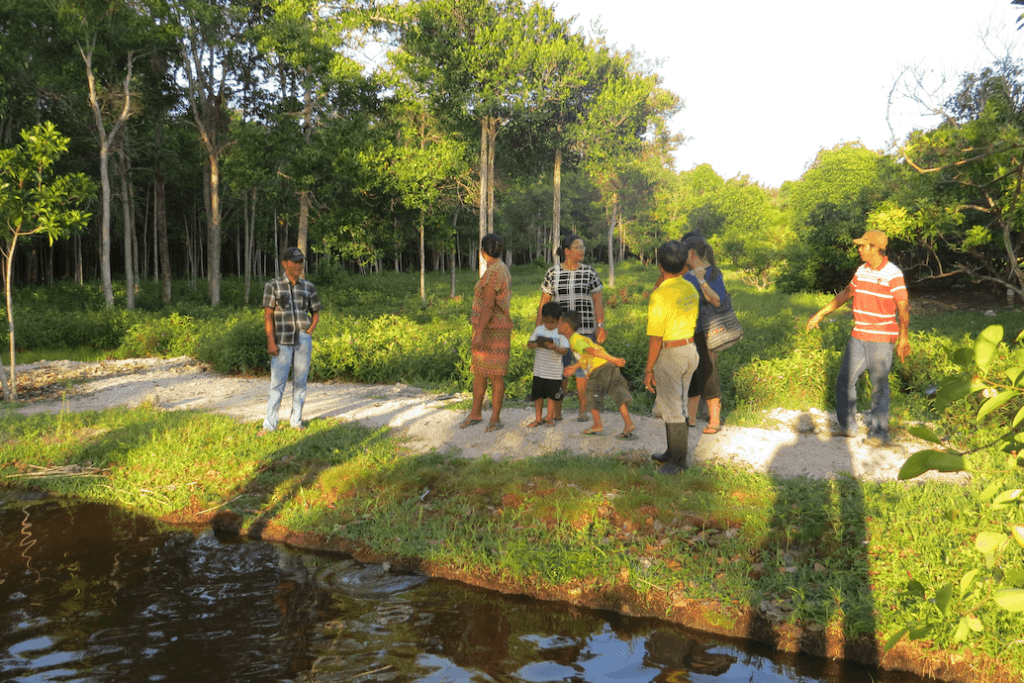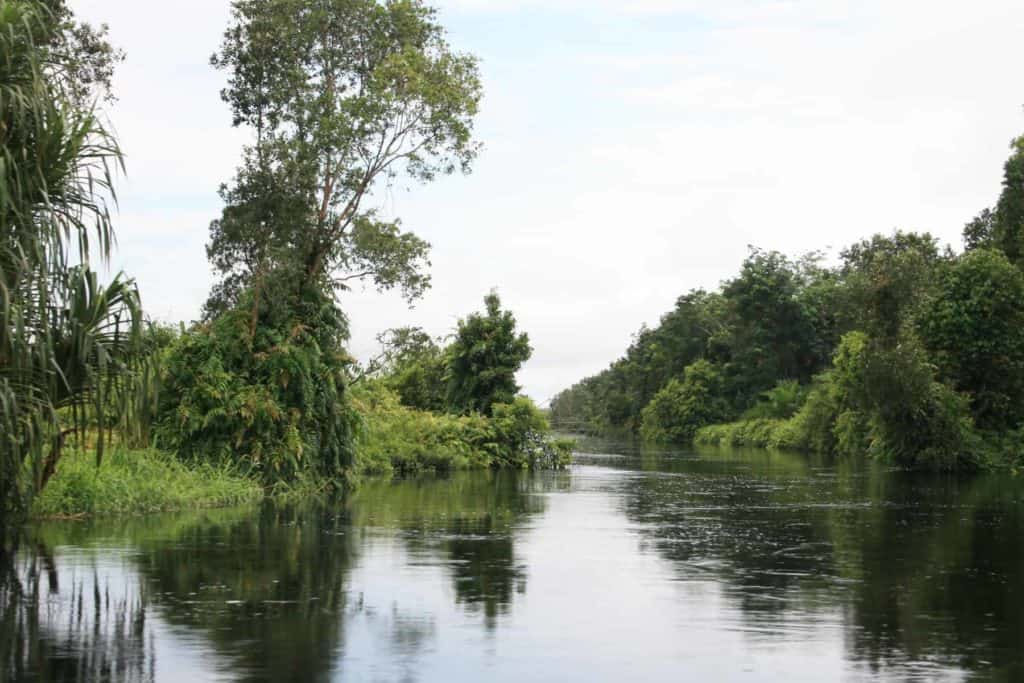In September of 2018, Save the Orangutan initiated a new pilot project in the Mawas area in Borneo around the village of Timpah. The aim of the project is to create ‘best practice’ and inspiration with regards to sustainable manufacture of rubber in an agroforestry system by involving of indigenous communities. Rubber is both a sustainable income source for the families in the area and an indirect protector of the 2500+ wild orangutans in Mawas. The project, which is financed primarily by the Civil Society in Development (CISU) pool, will run for 2 years up until August of 2020, and it is carried out in collaboration with our local partner BOSF-Mawas.
Mawas: Home to more than 2500 orangutans and several small villages
In the southern part of Borneo in the Indonesian province of Central Kalimantan is a peat forest area covering more than 300,000 hectares of high biological and environmental value. Save the Orangutan has worked with BOSF-Mawas on empowerment projects for the local community in Mawas since 2007.
Mawas is important to Save the Orangutan for several reasons. First of all, it is one of the world’s last forest areas of its kind and home to several endangered species, including the orangutan. Mawas is a low-lying and well-wetted ecosystem with more than 2500 wild orangutans. The area is also home to the indigenous Dayak people and more than 60 villages, which are primarily situated along the surrounding rivers.
This pilot project focuses on how the standards of living and income can be improved in Timpah, one of the villages in Mawas. The improved income and living standards are to benefit individual local families and manufacturers without carrying negative consequences to the environment and the orangutans’ living conditions (both short-term and long-term results).

Rubber manufacture can become more sustainable
One of the most important income sources and professions for the local communities in and around Mawas is rubber manufacture. More specifically, the manufacture of raw rubber (latex), which is extracted by draining syrup from gum trees. An estimate of around 80% of the nearly 3000 inhabitants of Timpah Village are involved in some form of rubber manufacture. The quality and profit of most rubber manufactures in Timpah are low compared to other comparable countries and areas. The manufacturers’ income is therefore low. According to Indonesian Rubber Research, the majority of small, family-run rubber manufacturers only make about DKK 420 a month on their 0.5–2 hectares of land with gum trees.
Timpah borders up to Mawas, and a more sustainable rubber manufacture will reduce the pressure on the local community and their search for sustainable income sources. The pilot project aims to improve the living standards of the 80 manufacturers directly involved, who are selected for the project. It also aims to elevate several other manufacturers in the future via new forms of manufacture, training, and new techniques for draining the gum tree syrup. Sustainable manufacture is going to financially benefit both parties involved as well as the environment, since the use of chemicals and the search for income sources damaging to nature will be reduced significantly.
The project’s focus and first steps
The goal is to establish new agricultural practices and develop tools for a future latex manufacture using a sustainable and specific agroforestry approach for at least 80 individual manufacturers. Locally, knowledge of the best agricultural processes and methods for efficient harvest (drainage) of gum trees is to be acquired at first.
A locally organised station for cultivation of seedlings and grafting of a fast-growing gum tree variation on local stems is going to be established. Agroforestry entails the aim of using soil comprised of a mixture of plants, trees, and crops, which can shed diversely in the period before the gum trees are ready to be drained (5–7 years), and which can biologically enrich the soil and environment in the cultivated areas in the long term.
Save the Orangutan will also help explore the possibilities of obtaining FSC certification (sustainable forestry) on the new manufacture. The certification will ensure increased biodiversity, general environmental considerations, and social sustainability. Eventually, it will also increase the demand and income for the manufacturers’ rubber latex.

Sustainable livelihoods will indirectly protect the peat forest of Mawas – and thereby the orangutans
The project titled ‘Best practice case for empowering rubber smallholders’ aims to be the pilot for further development and involvement of the indigenous communities around the Mawas area.
Mawas is characterised as part ‘conservation area’ and part ‘protected area’ and is of great preservation value, and it is therefore protected. However, the areas surrounding Mawas are not protected. The project is in line with our previous projects in and around Mawas as it focuses on prevention. Specifically, the focus is to mitigate the risk of illegal activities that can damage Mawas – and thereby the orangutan’s habitat.
If the project proves successful, the local living standards in Timpah and the families involved will increase. Additionally, it can create a basis for other villages and consequently, for other small private manufactures. Unfortunately, there are numerous examples of illegal attempts of gold digging, which poisons the water, and logging in Mawas as a means of extra income. The aim is for this project to reduce illegalities in a sustainable manner.
We are looking forward to sharing more as soon as we receive updates from the start-up and the initial results.
Read more about Save the Orangutan’s conservation programmes here >>
Cover picture: Faisal Akram, Creative Commons